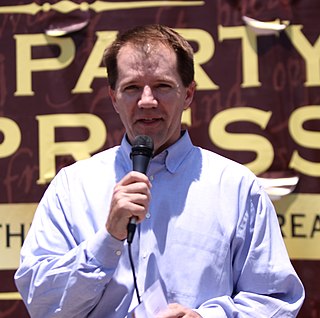A Quote by Orrin Hatch
This principle that judges are not politicians lies at the very heart of a judicial job - of the judicial job description.
Quote Topics
Related Quotes
I do think the whole question of judicial accountability is a complicated one. On the one hand, you want to encourage judicial independence. And it's always, I think, problematic when an unpopular decision triggers a recall election. Because it sends a disempowering message to judges. On the other hand, it's the only way that voters have to rein in someone whose views are really so out of the mainstream of public opinion that they jeopardize the legitimacy of the judicial process.
On the one hand we want to preserve the integrity of the judicial branch, and we want to talk about judicial independence, and how damaging and dangerous it is when Donald Trump calls out Judge [Gonzalo] Curiel. And at the same time, at the end of the day, judges work for us and we can recall them and we can impeach them.
You can understand why the original framers of judicial ethics thought it would be undignified and would call into question the legitimacy of the judicial decision-making process to have mudslinging by judges, but the way that we hobble people of enormous integrity from defending themselves is, I think, deeply problematic in states where you have an elected judiciary, or a judge is subject to recall.
If Americans loved judicial activism, liberals wouldn't be lying about what it is. Judicial activism means making up constitutional rights in order to strike down laws the justices don't like based on their personal preferences. It's not judicial activism to strike down laws because they violate the Constitution.



























